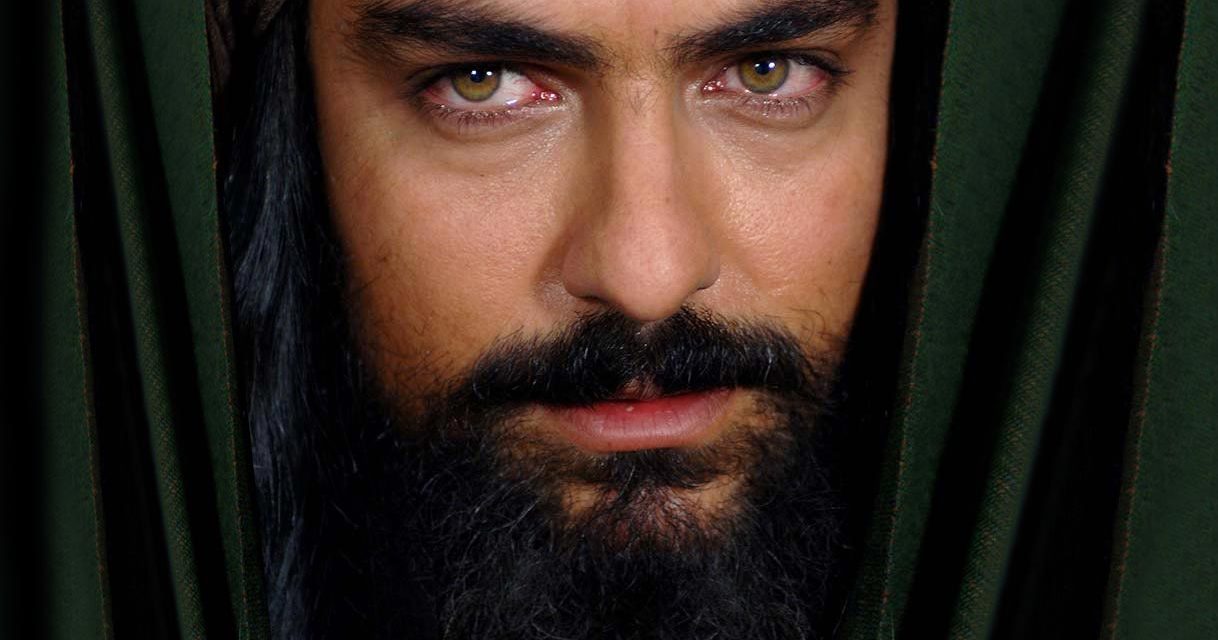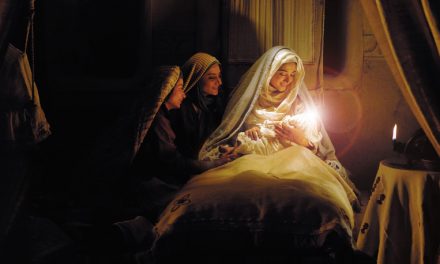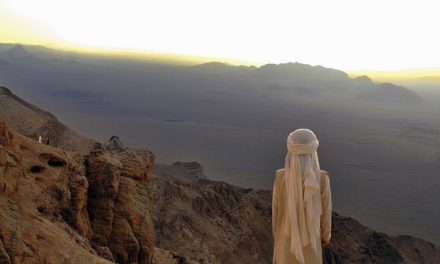In the name of Allah, the Beneficent, the Merciful
The Oppressed Character in the History by the Narration of Majid Majidi
After Forty Years of Cinema without the Prophet
After “Al-Risala” film by Moustapha Akkad and after forty years, another outstanding work about the Prophet of Islam was made. It is an Iranian film which has a completely different approach from Akkad movie and is directed by Majid Majidi. This film, rather than quoting narrative history, expresses the real personality of the Holy Prophet and shows to the world his mercy for all creatures.It has been met with warm reception among people both inside and outside the country.
Concepts and Techniques
“Mohammad: the Messenger of God”, aside from the technical styles including high-quality and spectacular frames, extraordinary scenes, and special effects which can be said they are unique in Iranian cinema, contains significant concepts that its special importance comes from them.
Prophet of Mercy
One of these concepts is showing the holy Prophet’s divine face. In the age that the demons of the world do not stop trick to distort the image of Islam and the Prophet and by forming the terrorist group of the Islamic State (Daesh) brutally show distorted image of Islam in the media, representing the true face of the Prophet of mercy is an action that seems smart and strategic.
‘Shi’b’ (defile) of Abu Talib: the Great Victory Archetype of God
Referring to the event of ‘Shi’b’ of Abu Talib in the film is also an important strategic implication of today Muslim nations. At a time when the Muslim nations including Islamic Iranare living in difficult conditionsof the brutal economic sanctions and their persistence in this condition is the necessity for achieving their great victory, showing the persistence of the Prophet and his companions against terrible conditions of sanctions in ‘Shi’b’ of Abu Talib would be inspirational, and such a message is considered as today most significant strategic message.
Abu Talib: the Oppressed Character in the History
Representing the acceptance of guardianship (Wilayah) by Abu Talib, the uncle of the Prophet, in the film, which has been well depicted and also narrating the story of the film by him are of special points of the film.Majidi’s film, first attract attention to the Prophet’s character, then to Abdul-Muttalib’s, his grandfather and after Abdul-Muttalib’s death in the middle of the film get attention to Abu Talib.As Majidi says, depicting Abu Talib as the Prophet’s faithful patron and showing his interest and devotion to the Prophet and his attempt to fulfill his father’s will about the supervision and support of the Prophet all are Majidi’s tribute to Abu Talib that he considered him as the blessing of his work[1].In the history, due to some reasons, most of the Muslim people were without detailed information about high and outstanding character of Abu Talib and his constant support of the Prophet Muhammad.
One of the most important factors of this ignorance in the history of Islam is the difference between Sunnis’s beliefs about Abu Talib’s character.Some Sunnis by relying on forged traditions, which have been failed by the infallible Imams, believe that Abu Talib did not believe in the Prophet until the end of his life and he died pagan.While the Shia, from Abu Talib’s deeds and his remained speeches (whether in prose or in verse), believe that surely he had converted to Islam but for some reasons he was forced to hide his faith.It has been narrated that Hazrat Abdul Azim Hasani wrote a letter to Imam Reza (PBUH) and ask him about the authenticity of the narration stating “Abu Talib is in the small pond of fire”.Imam Reza (PBUH) said, “In the Name of God, but then if you doubt the faith of Abu Talib; Hell will be your abode.”[2] Maliciousness of Muawiyah ibn Abu Sufyan was major reason of people’s doubting in Abu Talib’s faith and his conversion to Islam.Muawiyah wrangled with Imam Ali (PBUH) and indicated his ancestors were superior to Imam Ali’s so that he could provide a social position for himself among Muslims[3].Abu Talib’s aim of dissimulation (Taqiyyah) of his faith is to strengthen and protect Islam; because the invitation of the Holy Prophet requires strong support and social and high-poweredcharacter that can also protect the prophet who was the leader of this invitation and the protector himself also remains apparently impartial.
Polytheists assumed that Abu Talib’s protection of the Prophet is because of their kinship relationship but in fact it was because of Abu Talib’s belief in the prophethood of the Prophet.

Abu Talib, the Great Acceptor of Guardianship (Wilayah) in the History
Abu Talib’s behavior in the film also speaks well of his acceptance of Wilayah from his father Abdul-Muttalib and after him from the Prophet. The first clear example of his acceptance is observed in the scene of the Prophet’s birth feast.On that day his older brother Abu Lahab is angry of his father’s feeding and without entering the house he leaves the house, while Abu Talib in perfect obedience to his father is at guests’ service.Another example is the scene of Abdul-Muttalib’s will, where Abu Lahab is sitting bedside father to parade his superiority and his succession after father’s death and to take the title of the head of the family after Abdul-Muttalib, we see Abu Talib in all humble standing in the room doorway and does not speak and is present there only by Abdul-Muttalib’s order.And as it was also assumed that the responsibility of protecting the Prophet would be allotted to Abu Lahab (elder brother), Abu Talib does not speak at all and obeys his guardian.
Later on Abu Talib’s acceptance of Wilayah and his obedience is also appear well in his relationship with the Holy Prophet. For instance, when the Prophet had freed a slave from the hands of Abu Lahab, with the promise of money, Abu Talib pays the young Prophet’s debt, and when the Prophetfinds half-dead bodyof JewishSamuel in the desert Abu Talib rushes to help him by the hinting of the Prophet. Abu Talib is always in submission and never ask question of his guardian’s deeds.In the film when the Prophet’s camel sits on the ground, Abu Talib immediately issued orders to caravan to camp, and when he sees that the Prophet Muhammad (PBUH) is splitting his food among hungry children, gives orders to distribute all food between the people unless the amount that they should bring to Ghadir.It is as if Abu Talib in Muhammad film is Ali ibn Abi Talib who is absent in the film.Without asking any question, he acts only by observing the behavior of the Prophet.In accepting Wilayah he has reached to a point that does not need any order and a hint of the Prophet is enough for him to understand the Prophet’s intention. He plays the same role for the Prophet that later onhis son, Ali ibn Abi Talib (PBUH), will play in a proper way,although, the difference between them is non-publicity and publicity of their faith.This is Abu Talib’s hidden faith and love which its conclusion is the obvious faith and love of his son Ali (PBUH).
Causes of some Harsh Criticisms
After Prophet’s death and despite the great event of Ghadir, accepting the guardianship of Ali (PBUH) was unbearable for some peopleand it can be said that today also the severity of accepting the guardianship even in film and in narrating a historical event, is incomprehensible and disgusting for some. We can say that this unquestioning obedience in following the right is the main reason that has persuaded some to write hostile and tough criticism against the film. However, Abu Talib’s supportive role and acceptance of guardianship has been shown in bold and in a effective way that after getting up from the chair of cinema, his personality remains in the mind of the audience and he, as one of the companions of Islam and one of the serious defenders and caregivers of the Prophetin the problems and intrigues, is lasting and eternal in audience’s mind.It should be noted that choosing proper actors play an important role in establishing a relationship between the audience and Abu Talib’scharacter in the story.As an instance, choosing Mehdi Pakdel with his good face and appropriate make-up in the role of Abu Talib, brings in mind the face of a clean-hearted, faithful and steadfast man. However, the sense of understanding of and devotion to Abu Talib which is created in the audience after watching the film, and a deep emotional bond that connects the audience to the character of the Prophet, will suffice that defects of the film become less obvious.
[۱]. Alef News Agency, Comparing Akkad’s Film with Majidi’s Film, Published on 29, December 2013
[۲]. Fakhär Ibn Sa’dMousavi, The Faith of Abu Talib, p. 82, & Allama Majlisi, Biharul Anwar, v. 35, p. 111.
[۳]. Sayyed Mohammadpour Tabatabaii, Abu Talib; the Incarnation of Faith, p. 165, 1996, Shahriar.




